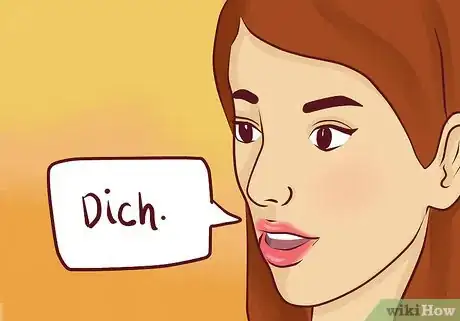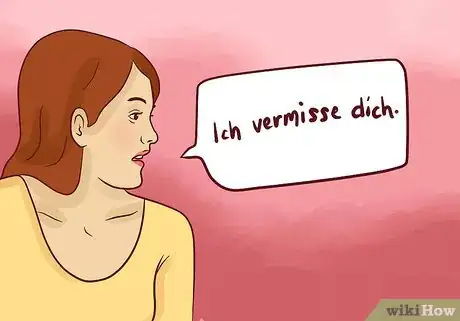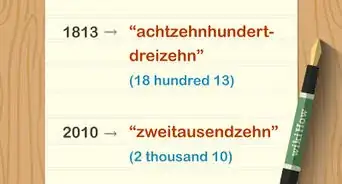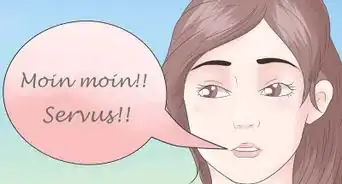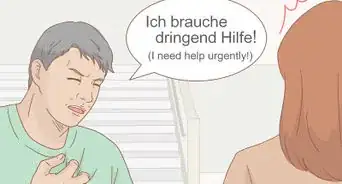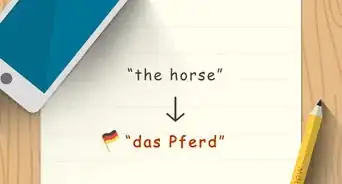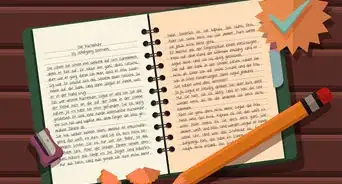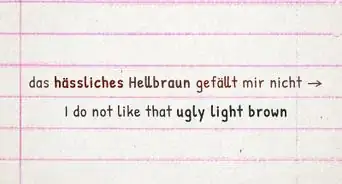X
wikiHow is a “wiki,” similar to Wikipedia, which means that many of our articles are co-written by multiple authors. To create this article, 15 people, some anonymous, worked to edit and improve it over time.
This article has been viewed 143,268 times.
Learn more...
It's very easy to say "I miss you" in German. Just give your voice the right longing tone and say "Ich vermisse Dich." In the International Phonetic Alphabet (IPA) that would be transcribed as: [ɪç fɛɐ'misə ˌdɪç]. If you need help nailing the pronunciation, wikiHow has your back! Read below the jump for more detailed help.
Steps
-
1"Ich": means "I". The letter 'I' is pronounced as a near-front, near-closed unrounded vowel [ɪ] like the 'i' in "bit". The 'ch' part is pronounced as a voiceless palatal fricative [ç], a sound which does not exist in English, but for example in Russian and Gaelic. The closest approximation in English may be 'sh', the voiceless palato-alveolar sibilant [ʃ]. But you can do better than that. Going from [ʃ], keep on breathing out and relocate your tongue such that the point of highest air friction is half an inch more back in your mouth, between tongue and palate. The result should sound like the very first sound when you say a highly emphatic, highly aspirated "Yes!" (or "Hhhyes!").[1]
- To hear this sound and see both an animation and a video of how it is pronounced, follow this link. Click on "Frikative", and then click on the [ç].
-
2"vermisse": is derived from the infinitive "vermissen" meaning "to miss". "v" is [f]. In "er" the 'r' is not pronounced. The two letters are pronounced as [ɛɐ] or [ɐ] depending on the local dialect, that is either as a diphthong gliding from open mid-front unrounded ('e' in American "bed") to near-open central ('u' in "but"), or just as near-open central vowel. The "miss" is pronounced as an English speaker would expect. It's also the stressed syllable of the word and the whole phrase. It's followed by an "e" which is pronounced as a mid-central unrounded vowel [ə] like 'a' in "about".[2]Advertisement
-
3"Dich" means "you" (as an object pronoun) and is pronounced exactly like the first word "Ich", except that it is preceded by a [d].[3]
-
4Finished.
Advertisement
Community Q&A
-
QuestionIs "Ich vermisse Sie" the more formal version of "Ich vermisse dich"?
 Tarien HumanCommunity AnswerIn German, when the object is "Sie," vermisse will change to vermissen. So the correct formal sentence would be, "Ich vermissen Sie." Otherwise, "Ich vermisse sie" means "I miss them."
Tarien HumanCommunity AnswerIn German, when the object is "Sie," vermisse will change to vermissen. So the correct formal sentence would be, "Ich vermissen Sie." Otherwise, "Ich vermisse sie" means "I miss them." -
QuestionHow do I say, "I'm missing my girlfriend very much"?
 Tarien HumanCommunity Answer"Ich vermisse meine Freundin sehr." Girlfriend in German is "die Freundin" and turns into "meine Freundin." Remember, the "eu" sound is pronounced like the vowel in "soy" and nouns in German are always capitalized. "Sehr" means very.
Tarien HumanCommunity Answer"Ich vermisse meine Freundin sehr." Girlfriend in German is "die Freundin" and turns into "meine Freundin." Remember, the "eu" sound is pronounced like the vowel in "soy" and nouns in German are always capitalized. "Sehr" means very. -
QuestionHow do I say "I miss you more"?
 NicoTop AnswererYou would say add 'mehr' (which means 'more') to "Ich vermisse dich", which would make "ich vermisse dich mehr" ("I miss you more").
NicoTop AnswererYou would say add 'mehr' (which means 'more') to "Ich vermisse dich", which would make "ich vermisse dich mehr" ("I miss you more").
Advertisement
References
About This Article
Advertisement


